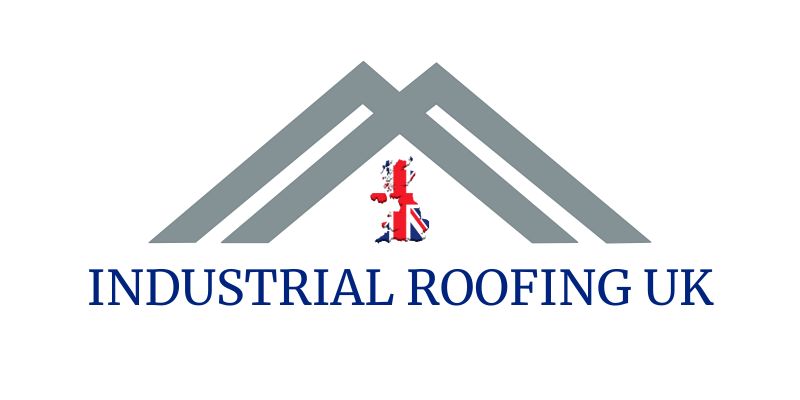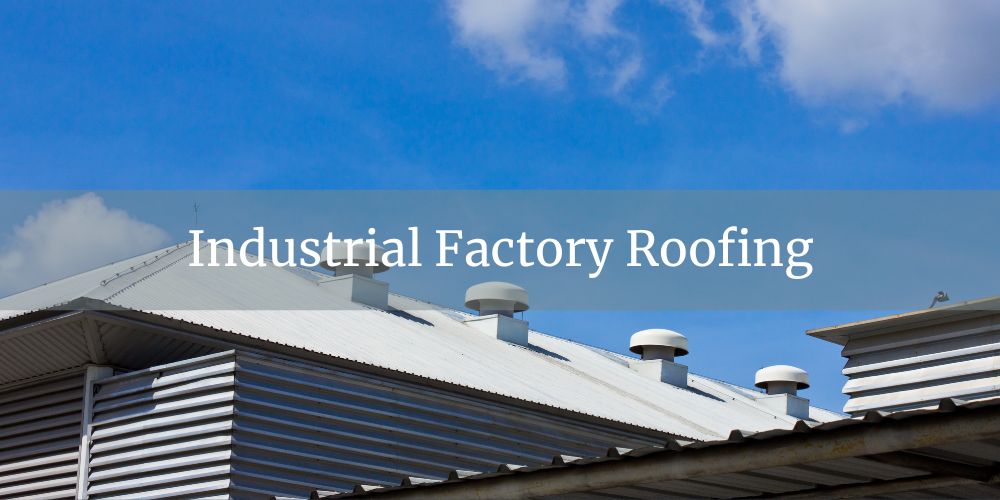Industrial factory roofing refers to the specialised roofing systems designed and installed for manufacturing and industrial buildings. These roofing systems are crafted to endure the unique environmental and operational challenges of factories, including exposure to chemicals, heavy machinery, and severe weather conditions. They often use materials and technologies which enhance resilience, energy efficiency, and safety. Regular maintenance and timely repairs are crucial to ensure the longevity and optimal performance of industrial factory roofs.
Industrial Roofing UK deliver expert industrial factory roofing services to sites across the UK, ensuring robust protection for manufacturing and production facilities. We specialize in the installation, repair, and maintenance of high-performance roofing systems tailored to the demands of factory environments, including metal, composite, and built-up systems. Our solutions are designed to handle heavy-duty usage, temperature variations, and complex layouts while minimizing disruption to daily operations. From planned upgrades to urgent repairs, we provide nationwide coverage with a focus on safety, durability, and long-term performance.
What Is Industrial Factory Roofing?
Industrial factory roofing refers to the specialised roofing systems used in buildings such as factories, warehouses, and manufacturing plants. These roofs are engineered to handle extreme conditions, including heavy machinery vibrations, chemical exposure, and substantial foot traffic. Metal panels are normally used for industrial factory roofing, they are selected for their strength and resistance to environmental stressors. According to the National Federation of Roofing Contractors (NFRC), these roofing systems must be robust enough to endure harsh weather conditions and frequent temperature changes.
Moreover, industrial factory roofs often require additional features such as insulation and ventilation to maintain optimal indoor environments and energy efficiency. Regular maintenance and timely repairs are crucial to extend the lifespan of these roofing systems, with studies indicating well-maintained roofs can last up to 50% longer. The Building Research Establishment (BRE) emphasises the importance of using high-quality materials and skilled professionals for installation and upkeep to prevent issues like cut edge corrosion and leaks. Overall, industrial factory roofing plays a vital role in ensuring the safety, functionality, and efficiency of industrial facilities, making it an integral aspect of building management and infrastructure.
Have a question about an upcoming project?
How Is An Industrial Factory Roof Different To Other Types Of Industrial Roof?
An industrial factory roof differs from other types of industrial roof primarily in its design and material requirements. Factory roofs often need to accommodate heavy machinery, large-scale production processes, and specific ventilation needs, which require robust materials like metal cladding and reinforced structures. Additionally, factory roofs must provide superior resistance to chemicals, high temperatures, and other harsh conditions common in manufacturing environments. This makes them more specialised compared to other industrial roofs, which might not face the same intense operational demands. Below we look at how the requirements for industrial factory roofing differ in more detail.
- Material Requirements
- Ventilation Needs
- Chemical Resistance
- Load-Bearing Capacity
- Thermal Management
1. Material Requirements
Factory roofs often require more durable materials, such as metal cladding and reinforced structures, to support heavy machinery and endure operational stress. These materials provide the necessary strength and longevity to manage the weight and vibration of industrial equipment efficiently. Unlike standard industrial roofs, factory roofs are designed to handle significant loads without compromising structural integrity. This makes metal cladding and reinforced structures essential in maintaining a safe and operational environment for manufacturing processes. According to the National Roofing Contractors Association (NRCA), the use of robust materials can extend the lifespan of industrial roofs by up to 50%.
2. Ventilation Needs
Factory roofs typically need specialised ventilation systems to manage heat and fumes generated by industrial processes, unlike other industrial roofs which may not have these stringent requirements. Effective ventilation helps control the indoor climate, reduce the risk of overheating, and ensure the safety of workers by removing hazardous pollutants. This is particularly important in factories where high temperatures and airborne contaminants are common. Incorporating advanced ventilation solutions helps maintain air quality and improve overall working conditions. Studies by the Health and Safety Executive (HSE) show proper ventilation can reduce workplace illnesses by 30%.
3. Chemical Resistance
Factory roofing must be resistant to chemicals and pollutants prevalent in manufacturing environments, which is not always necessary for other industrial roofs. This involves using materials and coatings which can withstand exposure to corrosive substances without deteriorating. Corrosion-resistant roofing helps prevent leaks and structural damage which could compromise the safety and efficiency of the facility. By selecting the right materials, factory roofs can remain durable and maintain their protective qualities in harsh chemical environments. The Building Research Establishment (BRE) highlights using corrosion-resistant materials can increase roof longevity by up to 40%.
4. Load-Bearing Capacity
Factory roofs are designed to support additional weight from heavy equipment and machinery, unlike other industrial roofs which may not require such high load-bearing capacity. This necessitates careful engineering and the use of strong, durable materials to ensure the roof can handle the extra load without sagging or collapsing. Adequate load-bearing capacity is crucial for maintaining the structural integrity of the building and ensuring the safety of both the machinery and personnel. Reinforced beams and supports are often incorporated to enhance the roof's ability to bear heavy loads. Data from the Steel Construction Institute (SCI) indicates reinforced roofs can support loads up to 20% higher than non-reinforced structures.
5. Thermal Management
Factory roofs often incorporate materials and designs to handle high temperatures and thermal variations specific to industrial production, differentiating them from other types of industrial roofing. Effective thermal management helps maintain a stable indoor temperature, essential for both equipment operation and worker comfort. This can involve using insulating materials and reflective coatings to minimise heat gain and loss. Proper thermal management not only enhances energy efficiency but also extends the lifespan of the roofing materials by reducing thermal stress. According to the Energy Saving Trust, improving thermal management can reduce energy costs by up to 25%.
How Much Does Industrial Factory Roofing Cost?
Industrial factory roofing normally costs between £54 and £85 per square metre. The complexity of the factory roof and the type of roofing system used are the main variables in the cost of an industrial factory roof.
| Service | Cost Range |
|---|---|
| Industrial Factory Roof Installation | £54 to £85 per sqm |
*These estimates are general and actual costs can vary based on specific project requirements, location, and market conditions.


